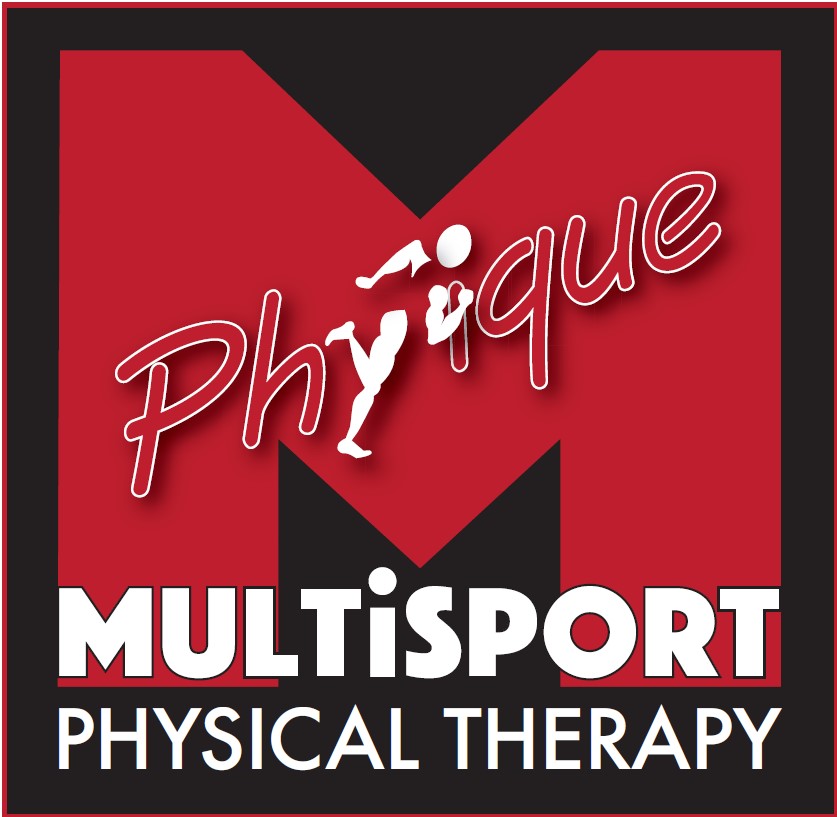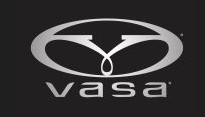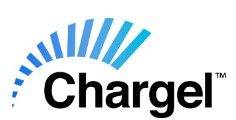Bill Gleason
TCSD Conversation by Craig Zelent
I thoroughly enjoyed my recent conversation with TCSD member Bill Gleason. Bill is one of our valuable volunteers who has helped many members with their swimming, running and much more. I know you will enjoy getting to know Bill.

"Bill and wife Maggie and daughter Willa Rose enjoying an Encinitas sunset"
Craig: What sports did you do before you became a triathlete?
Bill: Growing up, I was always enamored with sports. I was a body surfer all through my youth, growing up in and around the ocean. I was also a bit of “gym rat” - I was a basketball player all my life and in high school, I ended up playing basketball. I also ran track for 3 years. As a basketball player, I was the #2 guard, or “off-guard,” mostly because I was a much better shooter and passer, than a point guard. I got my start with running doing sprints and hurdles my freshman year in high school, and loved it right away. I was a fairly talented intermediate hurdler, but unfortunately I decided to spend the last semester of my senior year in HS goofing off, rather running hurdles. It’s too bad, because I probably would have continued to develop and been decent. I had finished well the year before as a junior. Anyway, I continued to play basketball all the way through my twenties. It was always one my first activities of choice, along with body surfing, and kept me reasonably fit. I spent a lot of time body surfing and doing other water sports such as wake boarding, open ocean swimming, scuba diving, and competitive sailing as a kid. I spent a lot of time in the water, and on the court.
Craig: What sequence of events led you into triathlon?
Bill: Several factors; First and foremost, I had reached a point in my life where I was very unfit, terribly out of shape in view of how I had spent my youth and most of my twenties, as I described above, and downright unhealthy. I had been in law school and graduate school for 4+ years. Physically, I was basically a mess. Way too many bad habits and unhealthy practices, in combination with a simple lack of activity, had rendered me pretty much athletically useless. I got talked into an intramural basketball league while in my third year of law school at USD, and it was a slap in the face. At the same time, several friends including my cousin had been trying to persuade me to do a triathlon with them. My cousin was very fit at the time, an officer in the Marine Corps, and a hell of a runner. So, he finally got to me, and I started training with him by 2003. I didn’t do my first race until June, 2004 – San Diego International Triathlon. We did the sprint and he beat me. I did surprise myself in the water and on the bike that day, and I was all-in: hook, line and sinker. That day I didn’t really know it, but my life changed.
An even bigger impact was eight years prior, when I saw my father, with whom I was very close, struggle with - and ultimately lose - his battle with Type 2 diabetes. He was a great guy, but basically he did many things wrong with regard to food, nutrition, activity and lifestyle. He suffered a very uncomfortable and premature death, in his late sixties. I will not go into details here, but it was very bad. I have long since come to know that this is completely avoidable. This was a powerful revelation to me. At the time, I did not know how, but I knew that what happened in his last years would have a profound and permanent effect on me. He was a successful attorney for 35 years and was a big influence upon my decision to go to law school. Anyway, as I saw myself becoming become more and more sedentary and unhealthy, I knew deep down that I needed to do something different. I wanted to get back to my old ways. Since I was no longer any good at basketball and felt I had lost passion for the game, I turned to endurance sports. What a great decision that was.
Craig: What athletic accomplishments are you most proud of?
Bill: Well, I won my age group at Los Angeles in 2011, and have podiumed and even won my AG in several local races. I improved 48 minutes over one year at Wildflower Long Course, and there are others. However, I don’t think those are a big deal. Personally, I see my own athletic accomplishments as a progression and set of small milestones over time. When I think of my accomplishments, I can point to a few good performances at National Championships, for example, though I have yet to make Team USA. I can also point to some really bad performances there too. I can point to the AG podiums and wins. However, I go back to the idea that true improvement is a hard endeavor, and significant progress for most triathletes takes real dedication. This is a point I constantly try to impress upon my athletes (and anyone who will listen). Anyway, I prefer to look back at where I was in 2003 when I started first training for endurance sports, and I see a tremendous amount of progress, which comes from deep motivation, hard work, and persistence, and a lot of learning. Above all, you must have a passion for the sport and a true desire to improve. I believe I have done that and that makes me very proud. It has also strongly shaped my Coaching philosophy.
Craig: The TCSD functions only through the efforts of take charge volunteers like yourself. What activities do you lead?
Bill: Agreed - the volunteers in TCSD are critical and a core component of what TCSD has to offer. I have been thrilled to be able to offer two workouts: Since 2011, I have been leading Open Water Workouts in the bay. I started my Workout in Glorieta Bay six years ago. Currently we have it on Thursday evenings in the spring and summer at Ventura Cove, Mission Bay (off of Gleason Road, no kidding - I still want to learn more about who that road is named after). This workout has a wide range of abilities and experience; however it is not a beginner workout. There is a beginner, Open Water workout in TCSD, but this is more of an intermediate to advanced session. It’s a great opportunity to get race-like conditions in a controlled and fairly fast interval workout, focused on racing skills. The athletes tell me repeatedly how much fun this workout is and how much they get from it, training wise, while having a good time. I love this workout.
I also am in my second season of coaching the TCSD Track Workout at UCSD. This track workout is Tuesday evening on the track at 6PM. This one is year round. It is a beginner friendly workout; we get the whole range of runners from beginners, to fast and talented runners blazing around the track, and everyone in between. We break it up into groups so most everyone is appropriately matched in their own group. I love coaching this workout too, in particular because of the progress I see so many athletes make over the course of a season, or even a few months. It also brings me back to my own track days way back in the day (the 80’s ..OMG…).
Craig: How did you make the leap from full time attorney to full time triathlon coach?
Bill: Well, I as I described above, I had already started racing competitively before I had even become an attorney. I did my first race in 2004 while I was still finishing my MBA, which I completed in conjunction with Law School at USD, as a joint-degree program. Fast forward several years, and by 2009 I realized that I would ultimately be changing jobs, most likely careers. At the least, I would be looking for new ways to apply my law and business background. It’s easy at this point in this discussion for someone in my position to bash the legal profession, and there is plenty not to like and to criticize (as with many professions). However, I will say that I had come to fully understand and to accept that it was not for me. It was not the best way for me to spend a career, so I decided to do the profession a favor, and produce one less lawyer. It was then in 2009 that I began coaching formally. Prior, I had been helping several friends and others with training because I felt I had a deep and intuitive understanding of what training was about, and what the sport demands. However I had just begun to learn. I went out that year, 2009 and got a USAT Level I Coaching Certification, and soon after an NSCA (National Strength and Conditioning Association), and CSCS (Certified Strength and Conditioning Specialist). Next, I took my USAT education to the next level, getting the USAT Level II Certification. I feel this background is very valuable, all of it is a legitimate, and a rigorous course of study (fortunately, I have spent enough time in graduate and JD level study to appreciate this).
So, I began to build my Coaching business in 2009 and, as with my own training, I stayed persistent, focused and motivated. I am still a licensed attorney, however I do not currently practice law, and have not in several years. I am thrilled with and proud of the success of Gleason Endurance Coaching.
Craig: What kind of triathletes hire you?
Bill: I love this question. The short answer is anyone who wants to get better. I want to coach anyone that is motivated (and able) to work hard at it, make some sacrifice, has the passion to improve, tempered with patience. I have coached beginners to intermediate to elite level athletes. Basically, if you want to improve, up your game, become - or get more - competitive, and you have the mind set and are willing to learn, I want to work with you. More specifically, a large bulk of my athletes have been at the point where they have been in the sport for a number of years, have perhaps hit a plateau and not seen continued improvement, and they want to get better. This is one of the best times to get a coach.
I’ve coached athletes in their 20’s just getting started, athletes going after their pro license and athletes in their sixties doing Ironman, shooting for Kona. One of my younger athletes just qualified for his elite license in duathlon. He is still trying for the elite triathlon license and has a very good chance. I also have an athlete heading to Kona this year.
Craig: What are your strengths as a coach?
Bill: I believe I have several. First, I look at each athlete as a unique individual and learn as much as I can about them as an athlete and an individual. This helps me avoid treating all athletes the same, and basically using a predetermined training plan. Each athlete responds to training stress differently and at different rates, can handle different levels of training stress over time, and each has their own sport specific strengths and weaknesses. Knowing how to develop, maintain and nurture those differences properly can result in real improvements in most all athletes. Basically, I do the opposite of applying the training plan approach. That is not to say that the same or similar training and individual workouts cannot help all athletes. Often they can. But if you are looking for that extra 5%, or even 1%, improvement in performance, you have to go beyond what everyone has in common in terms of increasing fitness from a base level. I am very good at identifying and developing those unique differences in most all athletes.
I am also known as swim coach. It’s true; I have had a lot of success developing the swim for many triathletes, both in the pool with technique and with open water skills. But that is not the complete picture of what I have to offer. I have also helped many with run form and durability, bike specific strength, handling skills, and also functional strength. I believe that when a functional strength approach is applied correctly to triathlon, it can have powerful effect both on performance and longevity in the sport, if your goal is to be around for many seasons.
I am also patient with my athletes in their development, accessible to answer their questions, and concerns, as well as give advice and support.
Craig: What coaching achievement are you most proud of?
Bill: Again, there are several. One story I love to relate is an athlete that came to me who had signed up for IMAZ, gotten a new TT bike that she did not know how to ride, and could not swim a lap in the pool. Fortunately, IMAZ was 9 months away. Luckily she had a marathon background. Cutting to the chase, we got her there ready to race, and she finished IMAZ under our goal time and continued on in the sport.
I am also proud of coaching a young athlete to get his pro/elite license in duathlon and make the big improvements needed to get the USAT elite license. That remains our goal, and I am confident he can achieve it.
Perhaps most of all, I am very proud of the significant progress that I have helped many athletes achieve in triathlon, and other endurance sports. Seeing people make real progress, become better athletes, achieve their goals and have fun is really what gives me the most satisfaction and what I will probably remember the most. It is also what I relate to most personally. This sport will give you good days and disappointing days, but the progress I see many athletes I coach make is the best part and cannot be taken away. That makes me happy.
Craig: How can people reach you?
Bill: See my website @ Gleasoncoaching.com or email me @ Gleasoncoaching@ gmail.com or come on out to one of my workouts!
Craig: What are your favorite benefits to TCSD membership?
Bill: The benefits are extensive and broad. Since 2005, I have benefited from the workouts myself, going back to track, the Cove Swim, Darrell Steele’s Saturday AM ride, and many others. I think the comradery and the support from other athletes is indispensable. I love the feel that everyone has a common passion, is eager to train and make friends and talk about their accomplishments. It’s also a great place to see great interviews at the monthly meetings, make connections and get training buddies.
Also, the Club events such as Aquathlons, monthly races, and beginner races are absolutely fantastic. It’s such a great opportunity for all the members. We are really lucky to have such a great Club. Keep it rolling people!
Craig: If you could waive a magic wand over the sport of triathlon, what would you change?
Bill: Personally, I would increase the popularity of the short course, draft-legal, and ITU style racing. I feel that watching short course draft legal, ITU racing, even at the regional or local level, as well as on the international stages, is absolutely thrilling. Watching races being won by a second or less, down the finishing chute is the essence of racing to me. And at some level, at some point, it’s all about racing - be that against yourself, your buddies, your local AG, or at the Olympics. It happens at the half-iron distance too. However, I believe that training for and performing well in an Olympic distance format is very complex and extremely interesting, as well as very challenging from a coaching perspective. I guess I would make more short course, Olympic distance racing in particular, more accessible in the way IM events are.
Craig: How did you meet your wife?
Bill: I met my wife, Maggie, in LA in late 2009 at a USAT Level I Coaching Clinic. At lunch break on the first day, I went up to her sitting by a water fountain in the front of the hotel, and asked if I could sit down with my lunch. We started a conversation and covered our experiences at Wildflower and other races. So the following day, she and her friend, with whom she had come to the conference, invited me to ride with them before our first class. We did, and I noticed that I was faster than her on the bike, and she noticed that I had a hole in my bike shorts. We hit it off.
We kept in touch, and soon found ourselves doing the long distance dating thing, as she lived in Mill Valley, Marin County and I was in Downtown SD. Anyway, things worked out great, she moved here to San Diego. We were married in 2013 and had our daughter, Willa Rose Gleason, later the same year. Willa is the pride and joy for both of us and a fantastic, amazing little person. She turns two years-old this month. Since she is not online yet, I post her workouts on the refrigerator each morning. Just kidding, of course. I want her to get into athletics only if she wants to. Of all the accomplishments I’ve tried to touch on so far, she by far and away is the best one I have ever had, and always will be.
My wife is also a fitness professional and a Triathlon Coach. She has several positions teaching fitness, at the YMCA, the Sporting Club La Jolla, and she owns her own personal training business “Up Your Fit” which you can find on the web @ Upyourfit.com.
Craig: What experiences have been the most important in your life that have shaped you into the man you are today?
Bill: Again, there are too many to cover. Really when it comes down to it, matters of life and death; Having my girl, Willa, with my wife Maggie. Losing my father too early in his life, my mother’s life, and in the lives of the rest of my family. These things are normal life, but they served to put things in perspective for me, and they placed a new premium on health and fitness, happiness and family for me. That is truly what matters most in my mind.
Craig: What are your future triathlon goals?
Bill: Stop getting slower. (Find the time to) increase my endurance.Maybe make Team USA at the Olympic distance one year, when (and if) I can find that time.
Craig: Bill, thank you so much for sharing your story. It is obvious that you have found your calling in this world. You were meant to be a father, husband and triathlon coach. The Tri Club would not be what it is today without you. Thank you for all you do!
Craig Zelent is a USA Triathlon Level 1 Certified Coach. Craig can be reached at 760-214-0055 or tricraigz@yahoo.com.








